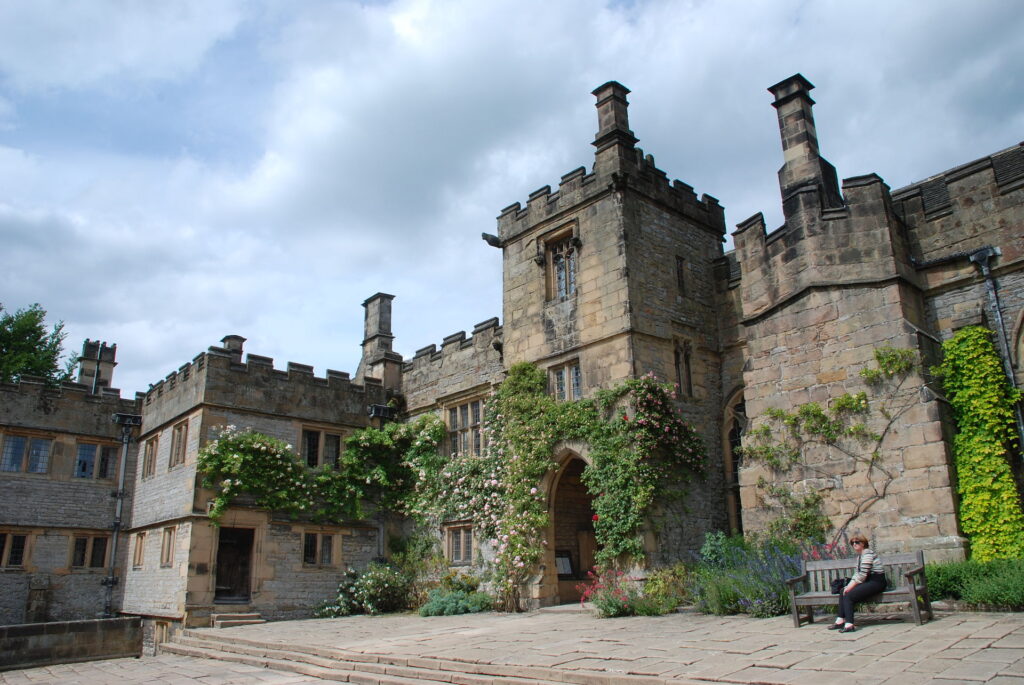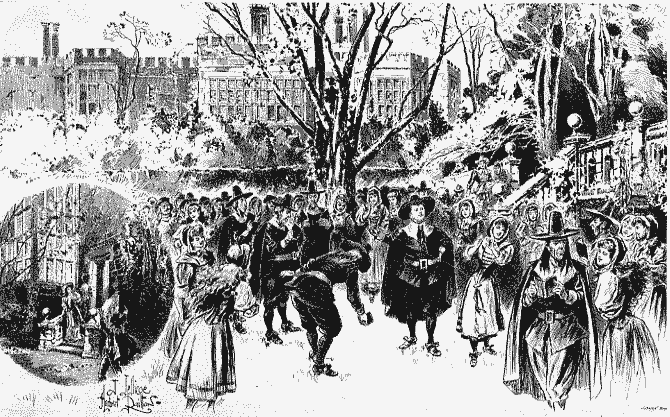18 September, 1892
Quiet all day – wrote song for Barrington (No 10)
Gdma, Auntie & Beaumont dined here.
In 1892 Sullivan produced a light opera with a writer other than W.S. Gilbert for the first time since 1875. Gilbert & Sullivan had split up two years previously. Since then, Sullivan had created his only grand opera, Ivanhoe. Now he’s back to the Savoy Theatre, and there’s a lot of speculation about what sort of piece he will present this year.
That piece is called Haddon Hall. The writer is Sydney Grundy. A fun fact about Grundy is that he once wrote an English version of a German play (by Gustav von Moser) called Harun al Raschid. In the story The Sleeper and the Waker, from the One Thousand and One Nights tales, al-Rashid is a Persian Caliph who roams the city in disguise along with members of his entourage. Sullivan & Hood’s later opera, The Rose of Persia (1899), will be based on that tale.
In this entry, Sullivan notes he has written song number 10, I’ve heard it said, for the show. The song is for the character Rupert Vernon, who will be portrayed by long-time Savoy Theatre star Rutland Barrington. It is common to see this sort of diary entry whenever Sullivan is composing.
The surprising aspect of this entry is its date. Haddon Hall was scheduled to premiere just six days later. It is not unheard of for Sullivan, or any composer for the stage, to make last-minute changes, even going so far as this—the composition and scoring of a completely new song at the last minute. But here that effort is just one episode in a remarkable, fevered sprint to get Haddon Hall ready for premiere.
The rush wasn’t preordained. Grundy provided Sullivan with song lyrics beginning in November of the previous year. Some modifications were made over the months, but they weren’t the cause of any delay.

Sullivan began work on Haddon Hall nine months previously, on 2 January, 1892, while staying near Monte Carlo. For a few weeks he worked, and gambled. In February his old kidney ailment started to return. On 28 February Sullivan notes that he had accomplished hardly anything for 3 weeks, owing to constant pain (though he still gambled). He had some productive weeks in March, but on 18 March reported being “very weak and ill” (but he drove into Monte Carlo that day, to gamble). On 25 March he reports “my needle wouldn’t act (hypodermic)”, indicating that he had been taking morphine. It is “the worst day I’ve had since ’79.”
His health does not improve. His nephew Herbert (“Bertie”) travels from England to nurse him; it is Herbert’s words we read in the diary starting on 6 April. The following two weeks are hell. Sullivan’s friends start to visit his bedside. The Prince of Wales visits, then sends his own Dr. Blane to consult. Bertie starts to write “bulletins” in the diaries, summarizing Sullivan’s condition day by day. On 16 April it is decided he can be moved back to London. On 20 April Sullivan is placed into a private train car with a doctor, his servants, Herbert, and the Cartes. More friends meet him in Paris. In Calais, Sullivan has to be carried onto a boat to cross the Channel.
I’ll skip ahead! Because as we know, Sullivan does not die, this time. He spends two months recovering at home. On 1 July he starts writing his diary again. And now he needs to compose most of Haddon Hall as quickly as possible, while preparing to rehearse and conduct the Leeds Music Festival, scheduled to begin on 5 October. The festival requires him to lead a series of weekly choral rehearsals. During his illness, the Festival Committee has asked Sir Joseph Barnby to handle most of those rehearsals.
Poor Barnby, I always think of him as the bridesmaid. He was the boy narrowly beaten out by Sullivan for the first Mendelssohn Scholarship, 36 years previously. On the other hand, every time you see a packet of “Sweet and Low” and wonder why the product name is shown on a musical staff, think of Barnby.
Thanks to Sullivan’s diary, we have a lot information for when the songs for Haddon Hall were composed. And it reads like the diary of an overworked college freshman, partly because Sullivan spent some of August hunting for a new summer home. But from 25 August through to the Haddon Hall premiere on 24 September, to the end of the Leeds Festival on 8 October, Sullivan worked day and night.
Also on this day, 18 September, Sullivan dined with Gdma and Auntie. Auntie was his mistress, Fanny Ronalds. Gdma or “Grandma” was Fanny’s mother, Mrs. Carter. So far, I have not been able to identify Beaumont. Any help would be most appreciated.

